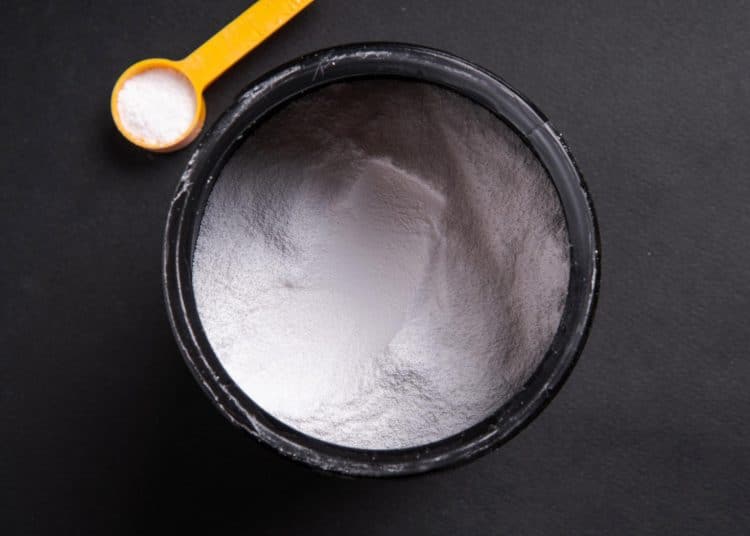Creatine has long been associated with muscle strength and athletic performance, but according to emerging research, its role in brain health and cognitive resilience may be just as vital — especially under stress. In a recent interview, Dr. Rhonda Patrick sat down with Dr. Darren Candow, one of the world’s leading creatine researchers, to explore why higher daily doses may be necessary to support both the body and the brain.
“The brain is small in size but uses 20% of our daily energy,” said Dr. Candow. “When you’re sleep-deprived, jet-lagged, or under cognitive stress, creatine seems to come to the rescue.”
The conversation focused on how modern stressors — from mental fatigue and poor sleep to aging and inflammation — increase our need for creatine far beyond the standard 5g daily serving used in most fitness routines.
Why the Brain Needs More Creatine Than You Think
Unlike muscles, which rapidly absorb creatine, the brain is protected by the blood-brain barrier, making uptake much slower and less efficient. “The brain says, ‘We’ll make our own creatine, thanks,’” explained Candow. “That’s fine — until you’re metabolically stressed. That’s when the brain starts begging for more.”
In fact, the best studies on cognitive improvement — memory, attention, focus — show results using 20 grams of creatine per day for at least a week. “This is where the contradiction lies,” said Candow. “You don’t need to load creatine for muscles, but you probably do if you’re targeting the brain.”
When asked about what dose he personally uses, Dr. Candow shared:
“I take around 10 grams a day for baseline. But when I’m sleep-deprived, flying, or under heavy mental load, I go up to 20 grams. If some of it goes down the toilet, I’m okay with that — creatine is cheap, and I want to maximize every system.”
Creatine for Cognitive Performance and Aging
The experts also emphasized creatine’s growing reputation as a nootropic — especially for older adults. “Aging is stress on the brain,” said Candow. “Creatine has been shown to support memory and reduce inflammation. The more fatigued or cognitively taxed someone is, the more creatine seems to help.”
One German study cited in the interview used 0.35g/kg (about 25g for a 70kg person) during 21 hours of sleep deprivation and found significant improvements in brain function. Other research shows that even 10 grams per day can boost brain creatine content by up to 10% in key regions like gray matter, white matter, and the thalamus.
“If you’re someone who’s chronically tired, jet-lagged, or even just parenting while working full time, your brain is metabolically stressed. That’s where creatine shines,” said Dr. Candow.
So, Is 5g Still Enough?
For muscle maintenance, 5 grams is a reliable starting point — especially if you’re using a high-quality form like those discussed in our guide to the best creatine types. But if your goals include mental sharpness, brain recovery, or long-term cognitive protection, this may fall short.
“Five grams will give you a small increase over time, but if your brain isn’t in a state of demand, it may send that creatine to your bones or just excrete it,” Candow said. “The more stressed you are, the more likely it will be taken up.”
Dr. Patrick pointed out that cognitive demand varies day-to-day, which makes a strong case for either increasing the daily dose or doubling up during high-stress periods. “If you’ve got a big presentation and didn’t sleep well, taking 20 grams that day might give your brain the edge it needs,” she noted.
Creatine: More Than Just a Muscle Supplement
The discussion also touched on creatine’s anti-inflammatory effects, potential immune system support, and its long-term promise in fighting neurodegenerative conditions like Alzheimer’s and dementia. While more research is needed, Dr. Candow believes creatine will become a cornerstone of brain-focused supplementation over the next two decades.
Want to dive deeper into creatine’s versatility? Check out our related guides:
- Creatine Pros and Cons
- Creatine Dosage Calculator
- Arnold Schwarzenegger on Creatine Myths
- Arnold on Creatine, Foods & Mood
Watch the video here
Tip: If you're signed in to Google, tap Follow.










